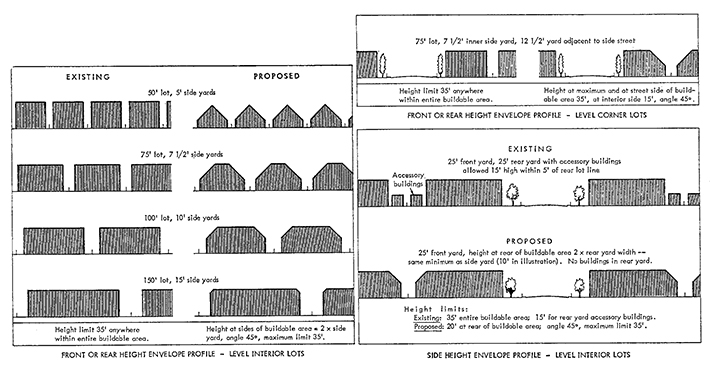Subtract the average existing grade for segment 1 from the roof elevation for segment 1.
Mean roof height flat roof.
These changes are illustrated in figure 1.
Additional edge zones have also been added for gable and hip roofs.
It appears there may have been some confusion on the client s part as to the definition of mean roof height.
For flat roofs the corner zones changed to an l shape with zone widths based on the mean roof height and an additional edge zone was added.
A frequently posed question when designing flat roofs is what upstand height do i need on the face of it a simple question with one may think a simple answer.
So why is mean roof height even important and why is it even listed on the plans.
12 l r 20 environmental loads wind loading structure is a regular shape located in a windborne debris region with terrain classification of exposure c and surrounded by flat terrain.
Mean roof height h h 3 ft 10 ft 0 5 4 ft 15 ft h 16 ft least horizontal dimension.
Note that the roof live load falls between the limits giv en.
Per asce 7 the mean roof height h is defined as the average of the roof eave height and the height to the highest point on the roof surface except that for roof angles of less than or equal to 10 the mean roof height is permitted to be taken as the roof eave height.
This measurement is best done on a bare roof because curled up roofing shingles will impair your measurement.
The mean roof height would be the average of 12 plus 22 67 or 17 33 as shown on the building plans.
Most of the time the simple answer is 150mm above the finished roof level.
Z velocity pressure evaluated at any height z q h velocity pressure evaluated at the mean roof height h k z velocity pressure exposure coefficient defined in section 30 3 1 and given in table 30 3 1 evaluated at any height z only used for part 3 h 60 windward pressures.
Then repeat this process for each numbered segment.

